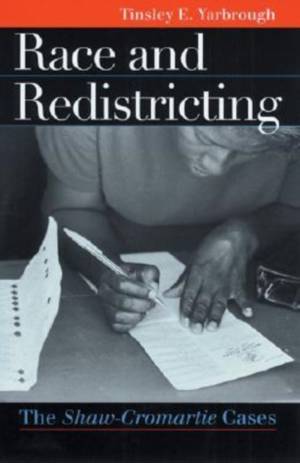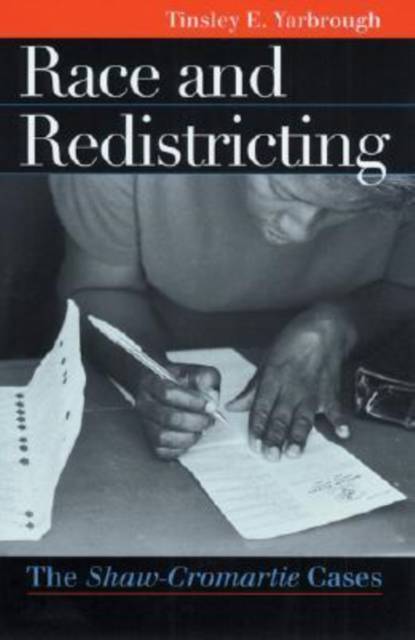
- Afhalen na 1 uur in een winkel met voorraad
- Gratis thuislevering in België vanaf € 30
- Ruim aanbod met 7 miljoen producten
- Afhalen na 1 uur in een winkel met voorraad
- Gratis thuislevering in België vanaf € 30
- Ruim aanbod met 7 miljoen producten
Zoeken
Omschrijving
Through much of the 1990s, a newly hatched snake wreaked political havoc in the South. When North Carolina gained a seat in Congress following the 1990 census, it sought to rectify a long-standing failure to represent African American voters by creating, under federal pressure, two "majority-minority" voting districts. One of these snaked along Interstate 85 for nearly two hundred miles--not much wider than the road itself in some places--and was ridiculed by many as one of the least compact legislative districts ever proposed. From 1993 to 2001, three intertwined cases went before the Supreme Court that decided how far a state could go in establishing voting districts along racial lines. Noted Supreme Court biographer Tinsley Yarbrough examines these closely linked landmark cases to show how the Court addressed the constitutionality of redistricting within the volatile contexts of civil rights and partisan politics. A suit was first filed by Duke University law professor Robinson Everett, a liberal who loathed discrimination but considered racially motivated redistricting a clear violation of the Fourteenth Amendment's equal protection clause. Yarbrough tells how Everett enlisted associates as plaintiffs and went on to win two Supreme Court victories in Shaw v. Reno (1993) and Shaw v. Hunt (1996)--both by 5-4 decisions. Following the creation of another "flawed" redistricting plan, he rounded up a new set of plaintiffs to take the battle back to the Supreme Court. But this time, in Easley v. Cromartie--on the swing vote of Justice Sandra Day O'Connor--the 5-4 vote went against him. Yarbrough shows the significant impact these cases have had on election law and the fascinating interplay of law, politics, and human conflict that the dispute generated. Drawing heavily on court records and on interviews with attorneys on both sides of the litigation, he relates a complex and intriguing tale about these protracted struggles. His cogent and balanced analysis considers whether the state legislature was wrong in using race as a measure for establishing the new district, or whether it was simply engaging in the time-honored practice of gerrymandering to ensure political balance. Race and Redistricting spotlights efforts to "racially engineer" voting districts in an effort to achieve fair representation. By examining one state's efforts to confront such dilemmas, it helps readers better understand future disputes over race and politics, as well as the ongoing debates over our "color-blind" constitution.
Specificaties
Betrokkenen
- Auteur(s):
- Uitgeverij:
Inhoud
- Aantal bladzijden:
- 240
- Taal:
- Engels
- Reeks:
Eigenschappen
- Productcode (EAN):
- 9780700612192
- Verschijningsdatum:
- 17/10/2002
- Uitvoering:
- Paperback
- Formaat:
- Trade paperback (VS)
- Afmetingen:
- 178 mm x 196 mm
- Gewicht:
- 317 g

Alleen bij Standaard Boekhandel
+ 101 punten op je klantenkaart van Standaard Boekhandel
Beoordelingen
We publiceren alleen reviews die voldoen aan de voorwaarden voor reviews. Bekijk onze voorwaarden voor reviews.











